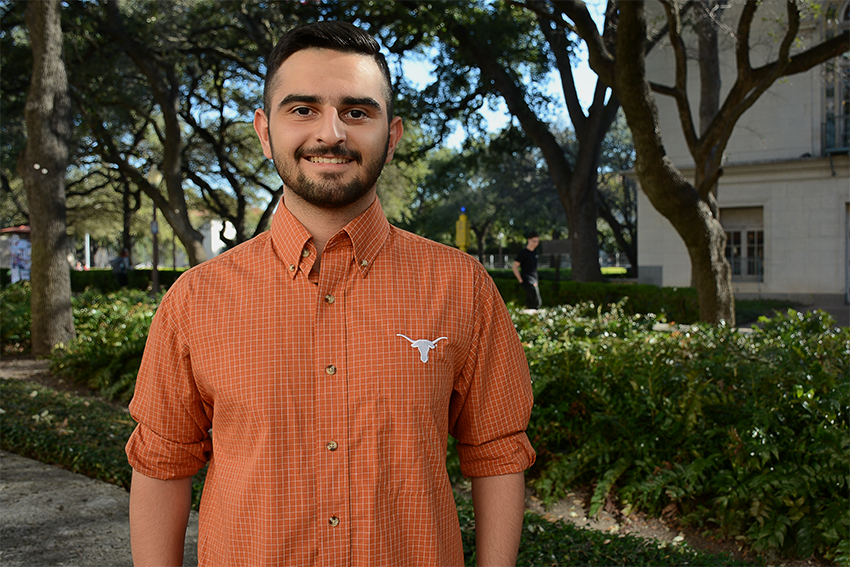President Donald Trump issued an executive order Friday barring refugees and immigrants from seven Middle Eastern countries from entering the U.S., and experts at UT say the travel ban will be legally challenged.
“The breadth of the executive orders and the discriminatory nature of them are going to be legally challenging,” said Jeremi Suri, history and public affairs professor. “There are many legal problems with the way the orders were written around these issues.”
According to CNN, Trump said refugees and immigrants from Syria, Iraq, Iran, Sudan, Somalia, Libya and Yemen cannot enter the U.S. for 90 days because they threaten national security. The order also states other refugees cannot enter the U.S. for 120 days and vetting will be toughened.
“I’m establishing new vetting measures to keep radical Islamic terrorists out of the United States of America,” Trump said during a press conference Friday. “We want to ensure that we are not admitting into our country the very threats our soldiers are fighting overseas.”
Suri said U.S. presidents have the authority to enact strict policies to protect national security, but Trump’s order singling out predominantly Muslim countries and saying he prioritizes Christian refugees could be considered religious discrimination.
“He has the right to place restrictions on people who come from particular terrorist groups which identify as terrorist groups,” Suri said.
Suri said a combination of the First and 14th Amendments provides the strongest case against the ban, because it can be argued that it violates people’s freedom of religion and equal protection under the law.
“That’s the clearest violation,” Suri said. “(There) has been a long-standing juridical prohibition on any kind of law or establishment of anything that has a particular religious discrimination built into it.”
Suri said abuse of executive power could be grounds for another challenge, because picking and choosing which countries to ban is executive overreach.
In 2011, former President Barack Obama ordered extreme vetting on refugees from Iraq, but Suri said the order did not ban people entirely like Trump’s order.
“It assessed the risk factors of individuals, and it did not create any blanket prohibitions on people because of their area of origin,” Suri said. “There was no prohibition on people from Iraq; it just created extra vetting.”
On Tuesday, White House counsel Donald McGahn said green card holders from these countries can travel and return to the U.S. as they please, according to Politico.
Computer science sophomore Dana Vaziri, an international student who moved from Iran in August 2015, said he has a two-year student visa allowing him to stay in the U.S. Unless Vaziri maintains his student status for graduate school, he will have to renew his visa, as it expires soon.
Vaziri said he agrees with Trump’s crackdown on radical terrorism but believes students such as himself only want to better the country.
“We’re here to learn, to give back to the world … and I think that this ban is unfair,” Vaziri said. “(International students) have to overcome a lot of barriers to get accepted into a United States university.”
Business management senior Javier Price said Trump is trying to protect the nation, but the airport detainments are unjust.
“It’s just like self-defense,” Price said. “I feel like the ones that are detained should be let in if they are 100 percent legal.”





















